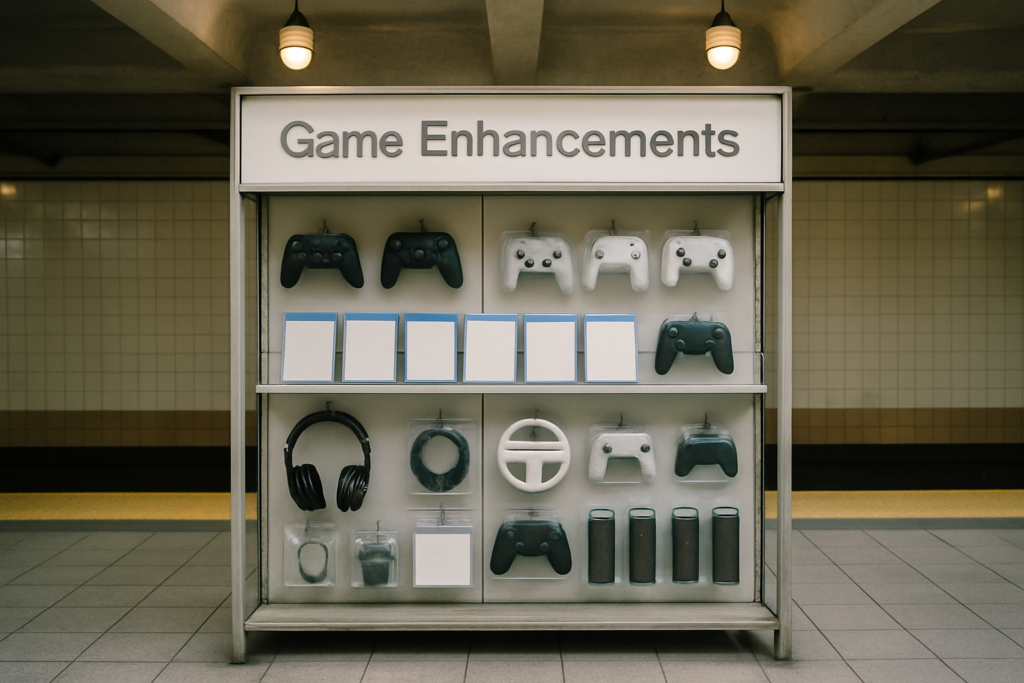Understanding RPG Mechanics
Mastering RPG mechanics requires familiarity with key gameplay elements and the strategic importance of character builds. By understanding these aspects, players can optimize their experience and enhance progression.
Core Gameplay Elements
RPGs often include exploration, combat, quests, and resource management. In exploration, navigating open worlds or dungeons uncovers hidden items, secrets, and story progression. Combat mechanics vary but generally involve:
- skills
- timed attacks
- strategy
Quests, which may be main storylines or side missions, reward experience points (XP), items, or crucial upgrades. Resource management, covering inventory, skills, and currency, determines survival and efficiency. Recognizing these elements helps streamline decision-making during gameplay.
Importance of Character Builds
A character build determines a player’s efficiency in combat and progression. Distributing stat points into strength, agility, or intellect can unlock unique abilities or synergies. Skills and perks, often tied to class or specialization, enhance unique playstyles. Equipment selection, from weapons to armor, influences stats and contributes to a build’s effectiveness. Prioritizing builds based on the game’s mechanics and one’s playstyle ensures optimal performance in tougher battles.
Quick Leveling Strategies
Maximizing efficiency in RPGs often hinges on employing targeted strategies. I focus on resource management, quest prioritization, and skill tree optimization to accelerate progression without compromising gameplay enjoyment.
Efficient Resource Management
Strategically managing in-game resources enhances leveling speed. I prioritize consumables like health potions and buff items to sustain combat performance during extended battles. Gold or currency management also matters—I invest in upgrades for gear and essential crafting materials instead of unnecessary luxuries. For example, repairing weapons or preparing stronger potions provides long-term benefits over purchasing aesthetic items. Tracking inventory weight (in games with encumbrance systems) prevents slowdowns and ensures movement efficiency, maintaining a competitive edge.
Choosing the Right Quests
Selecting quests based on rewards and difficulty unlocks faster progression. I start with main storylines and side missions that offer high experience points or rare equipment. Ignoring low-reward fetch quests during early levels prevents inefficiency. In party-based RPGs, completing group-based quest chains often grants unique abilities or party benefits that accelerate combat capabilities. If certain missions open new areas or gameplay mechanics, I tackle them earlier to access more leveling opportunities.
Optimizing Skill Trees
Developing skill trees to align with combat roles accelerates power scaling. I identify core abilities offering significant stat boosts or unlocking high-impact talents in early nodes. For instance, I prioritize passive bonuses like increased critical hit rates or stamina regeneration to boost combat performance consistently. Avoiding spreading points too thin in hybrid builds prevents weaknesses, focusing instead on synergies within one core path. After early progression, investing in secondary trees enhances adaptability for mid- to late-game challenges.
Exploring Multiplayer Features

Many RPGs now offer multiplayer modes, adding depth to their gameplay. Engaging with these features can enhance progression and create new opportunities to level up efficiently.
Cooperative Gameplay Tactics
Cooperative modes allow players to team up for shared goals. I recommend forming parties with balanced roles, such as tanks, DPS, and healers, to tackle difficult content. In games with raid systems, splitting responsibilities ensures efficient clear times and maximizes loot acquisition.
Communication is crucial for team synergy. Using voice chat or in-game party systems helps coordinate strategies during high-stakes encounters. For example, assigning target priorities or timing cooldowns can prevent unnecessary setbacks.
Some RPGs feature shared XP mechanics in co-op modes. Joining higher-level players in their quests can quickly yield substantial XP gains, provided game rules permit such leveling methods.
Competitive Modes for XP Boosts
Competitive modes often reward players with XP bonuses, making them effective for leveling. I suggest prioritizing PvP events with high XP multipliers or seasonal challenges, as these can significantly enhance progression.
Studying opponents’ tactics improves performance in these modes. For instance, analyzing common attack patterns or meta builds helps adapt strategies for consistent wins. Success in ranked matches is particularly rewarding, often granting rare items and large XP payouts.
Daily or weekly competitions frequently feature boosted rewards. Participating in these ensures steady progression while staying engaged with evolving game challenges.
Common Mistakes to Avoid
New RPG players often miss opportunities for progression by overlooking key gameplay elements. Knowing the common pitfalls can help avoid setbacks and improve the overall experience.
Neglecting Side Quests
Side quests often provide critical benefits, including experience points, gear, and valuable story insights. Ignoring them can result in slower progression and underpowered characters. I always prioritize these tasks for the bonuses they offer, focusing on quests that grant unique rewards, like rare items or significant XP boosts. Skipping them may also leave gaps in your understanding of the game’s lore and mechanics, which can impact later decision-making.
Overlooking Upgrades and Gear
In RPGs, outdated equipment or unoptimized upgrades can make combat unnecessarily difficult. Constantly improving gear ensures your character remains competitive against escalating challenges. I regularly check merchants, loot drops, and crafting systems to obtain better armor, weapons, and accessories. Overlooking passive upgrades, like enchantments or stat boosts, also hinders growth. Investing in well-rounded gear pays off when facing tougher enemies or high-level dungeons.
Recommended RPGs to Try
Exploring the right games can enhance your leveling experience in RPGs. I’ve compiled a list of standout titles, ranging from beginner-friendly to advanced options for seasoned players.
Top Titles for Beginners
- The Elder Scrolls V: Skyrim: Offers an open-world experience with diverse questlines, adjustable difficulty, and intuitive gameplay. Beginners can focus on exploration and gradually learn combat and crafting systems.
- Dragon Quest XI: Echoes of an Elusive Age: Combines a classic turn-based system with modern visuals. Its clear objectives and straightforward mechanics make it ideal for learning RPG basics.
- Pokémon Legends: Arceus: Blends action mechanics with familiar RPG elements. With its simpler progression system, it’s a great choice for players transitioning into RPGs.
These games prioritize accessibility without overwhelming new players, helping build foundational skills.
- Baldur’s Gate 3: With detailed decision-making, complex mechanics, and a deep narrative influenced by Dungeons & Dragons, this game demands strategic planning.
- Elden Ring: Combines challenging combat with an expansive open world and intricate lore. Success hinges on mastering timing, builds, and exploration.
- Divinity: Original Sin 2: Features tactical combat, rich storytelling, and cooperative play. Experimenting with character builds and ability synergies is key to progression.
These titles cater to experienced players seeking intricate mechanics, challenging enemies, and in-depth customization.





